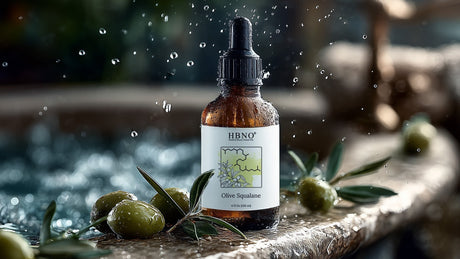In the modern food industry, the need for natural, safe, and effective preservation methods is stronger than ever. With consumers increasingly seeking clean-label products and turning away from synthetic additives, the spotlight has turned to essential oils-particularly Eucalyptus Globulus Essential Oil-as promising alternatives in food preservation.
Known as Eucalyptus Aromatherapy oil because of its sharp, fresh, and medicinal aroma, this Essential Oil has long been used in aromatherapy, respiratory health, and cleaning products. However, its powerful antimicrobial and antioxidant properties are now being recognized for their potential role in extending the shelf life of food products. Eucalyptus globulus essential oil as food preservative is gaining traction as a sustainable, plant-based solution that may revolutionize the way we protect food from spoilage.
Antimicrobial Properties and Mechanisms
One of the primary reasons Eucalyptus Globulus Essential Oil may be effective in food preservation is its robust antimicrobial action. Research shows that this oil inhibits the growth of various pathogenic and spoilage microorganisms. These include Staphylococcus aureus, Escherichia coli, Listeria monocytogenes, Salmonella spp., and fungi such as Aspergillus niger and Candida albicans.
Antioxidant Properties Support Shelf Life
In addition to fighting microbes, Eucalyptus Globulus Essential Oil also helps prevent oxidative damage to food products. Oxidation is a major cause of spoilage, particularly in fatty or oil-based foods like nuts, meat, and dairy. It leads to rancidity, discoloration, and nutrient loss.
Applications in Food Products
A growing body of research has evaluated the use of Eucalyptus Globulus Essential Oil in real-world food preservation scenarios. One study examined its use in mixed fruit juices, where the oil significantly inhibited microbial growth over several days of storage. Another application was in edible coatings for citrus fruits, where Eucalyptus Oil effectively controlled fungal infections and reduced weight loss during storage.
In dairy products, small amounts of Eucalyptus Essential Oil have been incorporated into cheese and yogurt to delay spoilage without altering taste. Similarly, meat products such as sausages and marinated chicken have shown extended shelf life when treated with this essential oil, especially when used in combination with mild heat or vacuum packaging.
Even bakery essential oil items like bread and muffins can benefit from the antifungal activity of Eucalyptus Oil, particularly against molds like Aspergillus and Penicillium, which are common in baked goods. The integration of essential oils into edible films, coatings, sprays, and packaging materials is opening up innovative ways to apply this oil across diverse food categories.

Advantages Over Synthetic Preservatives
The use of Eucalyptus Globulus Essential Oil in food preservation offers several advantages over synthetic chemical preservatives:
- Natural and Safe: As a plant-derived substance, it aligns with clean-label trends and is generally recognized as safe (GRAS) when used appropriately.
- Broad-spectrum activity: Effective against a wide variety of spoilage organisms including bacteria, yeasts, and molds.
- Biodegradable oil: Unlike synthetic preservatives that may persist in the environment, essential oils degrade naturally.
- Sensory Appeal: In small doses, the oil's pleasant aroma can enhance the sensory profile of certain food items.
- Resistance Management: Microorganisms are less likely to develop resistance to essential oils than to synthetic antibiotics or fungicides.
For consumers concerned about artificial ingredients and the long-term effects of chemical preservatives, Eucalyptus globulus essential oil as food preservative offers a reassuring and health-conscious alternative.
Considerations and Challenges
Despite its benefits, the application of Eucalyptus Essential Oil in food does require careful consideration. High concentrations may impart a strong flavor or aroma that can overpower certain products. It is essential to determine the optimal dose that ensures safety and efficacy without compromising taste.
Moreover, the oil's activity can vary depending on food matrix, pH, storage conditions, and interactions with other ingredients. Encapsulation technologies, nanoemulsions, and controlled-release systems are being explored to address these challenges and improve the consistency of Eucalyptus Oil as a preservative.
Regulatory approval also varies by country. While Eucalyptus Globulus Essential Oil is approved for food use in many regions, manufacturers must still adhere to local regulations regarding labeling, dosage, and application method.
Future of Eucalyptus Globulus Essential Oil in Food Preservation
As food manufacturers seek sustainable, effective, and consumer-friendly preservation options, the role of essential oils will continue to expand. Ongoing research into synergistic combinations-such as Eucalyptus Oil paired with mild heat, vacuum sealing, or other natural extracts-shows promise for enhancing preservation efficacy.
Furthermore, advancements in food technology will likely result in more innovative delivery systems, such as biodegradable antimicrobial packaging infused with Eucalyptus Globulus Essential Oil. These developments could drastically reduce food waste while improving food safety and quality.
Conclusion
Eucalyptus globulus essential oil is emerging as a science-backed, natural food preservative, thanks to its strong antimicrobial and antioxidant properties. It offers a clean-label solution to extend shelf life without synthetic chemicals.
HBNO Bulk offers Eucalyptus Globulus Essential Oil in bulk, making it ideal for food producers seeking natural preservation at scale. As research advances, this oil is poised to play a key role in the future of food safety and innovation. Collaborate with a Private Label Partner delivering consistent quality and fast turnaround.




